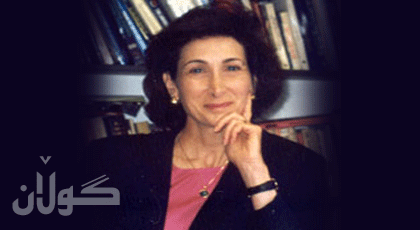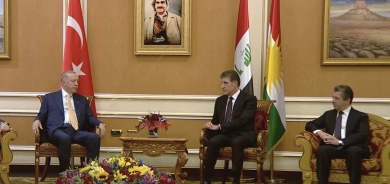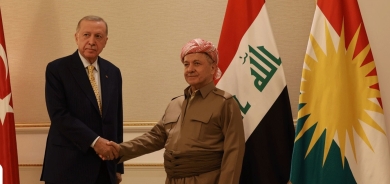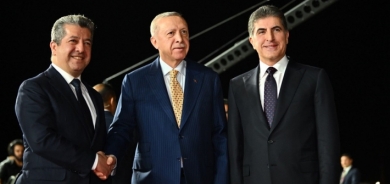Prof. Lenore Martin to Gulan: I do believe that Syria is a problem for the stability of Turkey
January 10, 2014
Exclusive Interviews

Lenore G. Martin is a Professor of Political Science. She is an Associate of the Weatherhead Center for International Affairs of Harvard University where she serves as co-chair of the WCFIA/CMES Middle East Seminar. She is also an Associate at the Center for Middle Eastern Studies at Harvard where she co-chairs the Seminar on Turkey in the Modern World co-sponsored by CMES and WCFIA. Her major field is International Relations; particularly, international relations of the Middle East and Turkey. Professor Martin is a member of the American Political Science Association, the International Studies Association, and the Middle East Studies Association.Gulan: Turkish Government has faced crisis for the second time--the first was the demonstrations in Istanbul-- and now it is facing a big challenge with the Islamic scholar wing of Fethullah Gulen. In your opinion, why is Turkey facing these difficult times, while during Erdogan’s cabinet good development has been taking place?
Martin: Though the Gezi Park protests began over the development of that important green space in Istanbul it spread throughout the country due to what many in the country perceive as a growing authoritarianism. This includes putting a number of journalists on trial and in jail as well as limiting freedom of speech and assembly when criticizing the government. These rights are essential for a working liberal democracy. As for the current upheavals Prime Minister Erdogan has been in power for over 10 years. It is not unusual for a government in power for that long to have a serious problem with corruption. In fact, that was one of the major reasons for the loss of the election by the coalition parties in power before the AKP came to power.
Gulan: Some think that Syria was behind the demonstrations took place last year in Istanbul since Erdogan had allowed Syrian opposition groups to hold meetings in Turkey. And again observers think that the problems between Erdogan and Gulen Hizmet movement is because of Syria in which Gulen movement thinks that Turkey has rushed in holding position towards Syrian issue. In this regard, don’t you agree that Syria has become a factor for instability in Turkey?
Martin: I do believe that Syria is a problem for the stability of Turkey. But, the problem is more from radical Islamic fighters that are now gaining the upper hand in the Syrian fighting and the alienation felt by Turkey’s Alevi community than the disagreement between the Hizmet movement and the AKP government.
Gulan: Another aspect of the problem between Erdogan and Hizmet movement refers back to their perspective towards Turkish becoming a member in EU in which Gulen movement has been disappointed about this step; this situation has led to the conflict between both sides. What is your comment about this?
Martin: There is no question that the AKP government did not expend much effort on achieving member ship in the EU in recent years. It appears that as events in the Middle East have turned against Turkey they are once again looking towards Europe. Though this is the case the provisional decision by Turkey to buy air defense system from China creating tension with NATO.
Of course it appears that in the current situation the followers of Fetullah Gulen and the AKP are in a competition for power. There appears to be serious concern that this has accentuated the Prime Minister’s tendency to blame outside powers for problems that arise in Turkey. This has created a strain with Washington in recent days.
Gulan: Justice and Development Party which has an Islamic background and has been supported by the Hizmet movement, and the support apparently has become the factor for letting AKP succeed. To what extent will AKP be able to remain in power if Gulen’s Hizmet Movement freezes its support for AKP?
Martin: There are many issues here. One of them is how the Kurdish community will decide whom to support in this competition for power.
Gulan: The opposition parties in Turkey consider any step against Erdogan and his government in their own interest. In this regard, the opposition parties might support Gulen’s position against Erdogan. In your opinion, to what extent can Hizmet movement share same interests with the opposition?
Martin: At the moment it appears the opposition parties will criticize corruption in government and play on the weakness of the government as would any opposition party anywhere in the world in similar circumstances. I do not think there will be the same cooperation between the Hizmet movement and the opposition party as there was between AKP and the Hizmet movement. There are some very real ideological differences between the movement and the main opposition CHP party for example.
Gulan: To what extent will the current crisis in Turkey have impact on the Next year elections? If the problem remains suspended, to what extent will it endanger AKP’s attitude by the coming elections?
Martin: The current crisis does leave the AKP more vulnerable which is one reason it may have been unveiled at this time. But it is not clear that the main opposition CHP or the MHP are in a strong position to benefit as much as one would expect from the corruption issue in the upcoming election. There is a strong conservative population in Turkey that will not feel comfortable supporting the opposition CHP or the strong nationalist ideology of the MHP. The AKP may be weakened sufficiently so that more independent candidates or opposition candidates will win local elections. This may lead the Turkish electorate to bring a coalition government to power in the following parliamentary elections.















